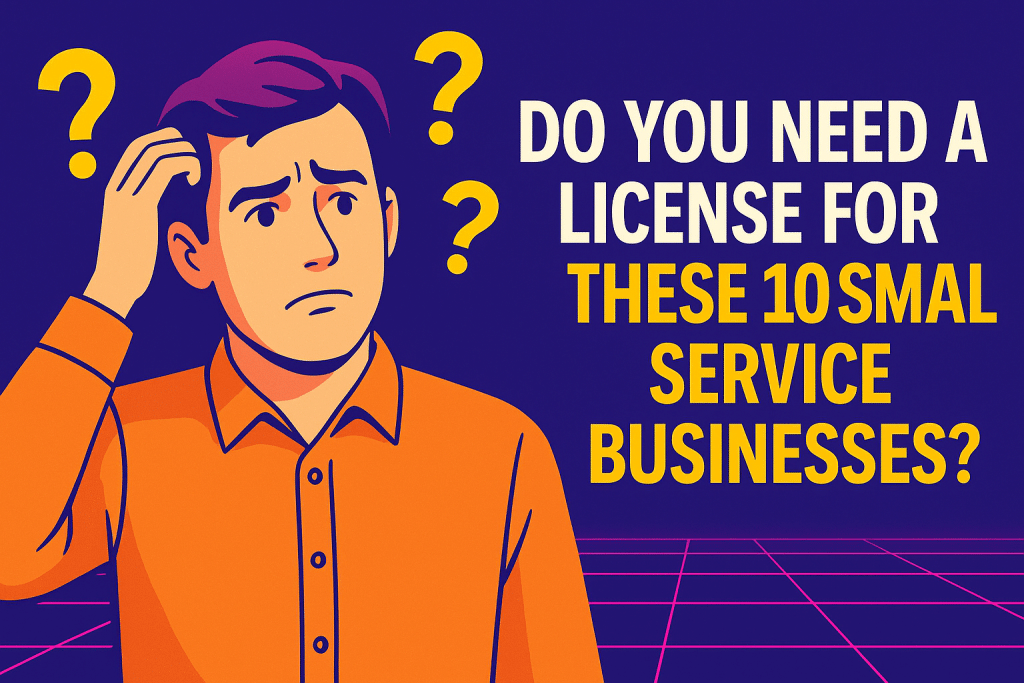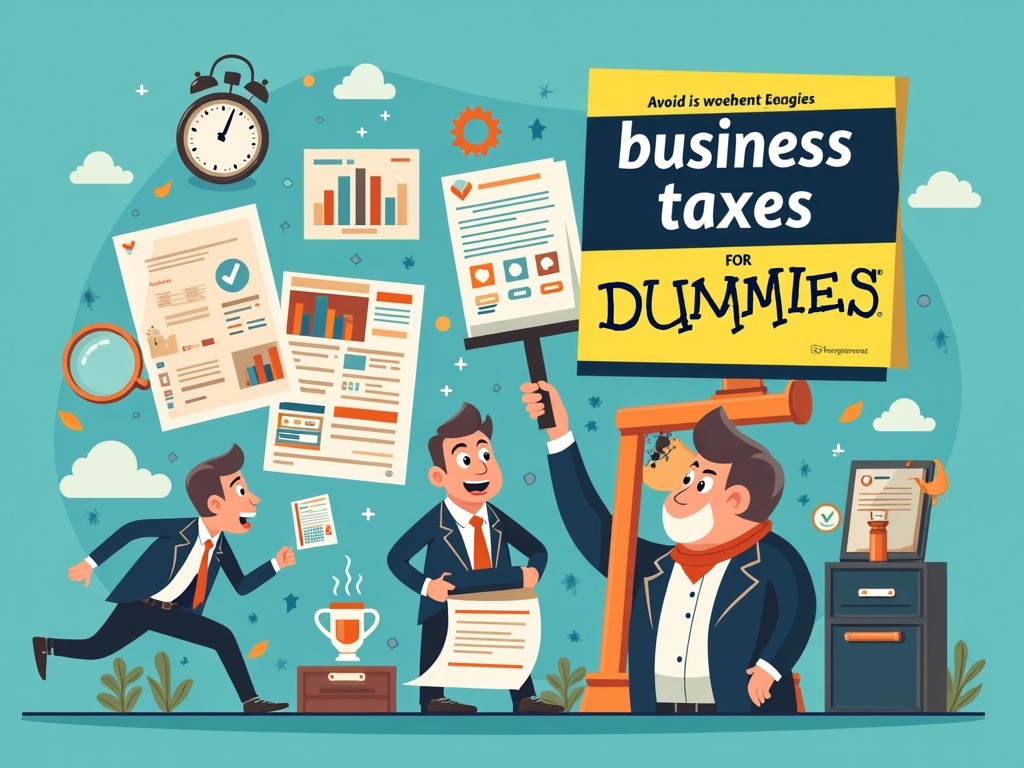Avoiding Tax Problems as a New Entrepreneur: A Comprehensive Guide
So, you’ve taken the plunge! You're a new entrepreneur, buzzing with ideas and ready to conquer the business world. But amidst the excitement of launching your venture, there's a less thrilling, yet crucial, aspect to master: taxes. Ignoring taxes can lead to penalties, audits, and even jeopardize your entire business. This guide provides a roadmap to navigate the tax landscape and keep your entrepreneurial journey on track.
Understanding Your Tax Obligations
Tax obligations for entrepreneurs are often more complex than those for employees. Here's a breakdown of the key areas you need to understand:
Business Structure and Its Tax Implications
The legal structure of your business significantly impacts how you're taxed. Common structures include:
- Sole Proprietorship: The simplest structure, where your business is not separate from you. Profits are taxed as personal income.
- Partnership: Similar to sole proprietorship but involves two or more individuals. Income is passed through to the partners and taxed at their individual rates.
- Limited Liability Company (LLC): Provides liability protection, separating your personal assets from business debts. Taxed as either a sole proprietorship, partnership, or corporation, depending on your election.
- S Corporation: Allows profits to be passed through to owners as salary and distributions, potentially reducing self-employment tax.
- C Corporation: Taxed separately from its owners, with profits subject to corporate income tax and potential double taxation when distributed as dividends.
Choosing the right structure is crucial. Consult a tax advisor or accountant to determine the most advantageous option for your situation. This decision can save you significant money and headaches down the road.
Self-Employment Tax
As an entrepreneur, you're generally considered self-employed. This means you're responsible for paying both the employer and employee portions of Social Security and Medicare taxes, collectively known as self-employment tax. This amounts to approximately 15.3% of your net earnings. Factor this cost into your pricing and financial projections.
Estimated Taxes
Unlike employees who have taxes withheld from their paychecks, entrepreneurs typically pay estimated taxes quarterly to the IRS. These payments cover income tax and self-employment tax. Failure to pay estimated taxes can result in penalties. To avoid this, accurately estimate your income and deductions each quarter. The IRS offers resources and worksheets to help you calculate your estimated tax liability. Consider using tax software or hiring a professional to assist you.
State and Local Taxes
Don't forget about state and local taxes! These can include income tax, sales tax, property tax, and franchise tax. The specific taxes you'll owe depend on your location and the nature of your business. Research your state and local tax requirements and comply with all filing deadlines.
Essential Tax Planning Strategies
Proactive tax planning is key to minimizing your tax burden and avoiding problems. Here are some effective strategies:
Maintain Accurate Records
Meticulous record-keeping is the foundation of sound tax management. Keep detailed records of all income and expenses, including receipts, invoices, bank statements, and mileage logs. Organize your records in a systematic way, either digitally or physically. Good records will make it easier to prepare your tax return, support your deductions, and respond to any IRS inquiries.
Claim All Legitimate Deductions
Entrepreneurs are entitled to a variety of tax deductions that can significantly reduce their taxable income. Common deductions include:
- Business Expenses: Ordinary and necessary expenses related to your business, such as office supplies, rent, utilities, advertising, and travel.
- Home Office Deduction: If you use a portion of your home exclusively and regularly for business, you may be able to deduct expenses related to that area, such as mortgage interest, rent, utilities, and insurance.
- Self-Employment Tax Deduction: You can deduct one-half of your self-employment tax from your gross income.
- Health Insurance Deduction: Self-employed individuals can generally deduct the amount they paid for health insurance premiums for themselves, their spouses, and their dependents.
- Retirement Contributions: Contributions to retirement plans like SEP IRAs or Solo 401(k)s are tax-deductible.
- Depreciation: You can deduct the cost of assets, like equipment or vehicles, over their useful life.
Consult with a tax professional to identify all the deductions you're eligible for. Keep thorough documentation to support your deductions in case of an audit.
Choose the Right Accounting Method
The accounting method you choose affects when you recognize income and expenses for tax purposes. Common methods include:
- Cash Method: You recognize income when you receive it and expenses when you pay them. This is the simplest method and is often used by small businesses.
- Accrual Method: You recognize income when it's earned and expenses when they're incurred, regardless of when cash changes hands. This method is generally required for larger businesses with inventories.
The cash method is generally easier for small businesses, but the accrual method may provide a more accurate picture of your business's financial performance. Consider which method is best suited to your business and consult with a tax advisor.
Plan for Major Purchases and Investments
Major purchases, like equipment or real estate, can have significant tax implications. Understand the depreciation rules and potential tax benefits associated with these acquisitions. Similarly, investments in your business or other ventures can affect your tax liability. Consult with a tax professional to plan strategically and maximize your tax advantages.
Common Tax Mistakes to Avoid
New entrepreneurs often make mistakes that can lead to tax problems. Here are some common pitfalls to watch out for:
Mixing Personal and Business Finances
Keeping your personal and business finances separate is essential. Use a separate bank account and credit card for your business. This will simplify your record-keeping and make it easier to track income and expenses. Mixing personal and business funds can also jeopardize your liability protection if you have an LLC or corporation.
Failing to File and Pay on Time
Deadlines are critical in the tax world. Missing filing deadlines or paying taxes late can result in penalties and interest charges. Keep track of all tax deadlines and file your returns and pay your taxes on time. Set up reminders or use tax software to ensure you don't miss any deadlines.
Ignoring 1099 Forms
If you pay independent contractors more than $600 in a year, you're required to file a 1099-NEC form with the IRS and provide a copy to the contractor. Failing to file 1099 forms can result in penalties. Keep track of all payments to independent contractors and file the necessary forms by the deadline.
Overlooking State and Local Tax Obligations
Remember that state and local taxes can be just as important as federal taxes. Research your state and local tax requirements and comply with all filing deadlines. This may include sales tax, property tax, and franchise tax.
Not Seeking Professional Advice
Taxes can be complex, and it's easy to make mistakes. Don't hesitate to seek professional advice from a tax advisor or accountant. A qualified professional can help you navigate the tax landscape, minimize your tax burden, and avoid problems with the IRS.
Resources for New Entrepreneurs
The IRS offers a wealth of resources for small business owners. Here are some helpful links:
- IRS Small Business and Self-Employed Tax Center: https://www.irs.gov/businesses/small-businesses-self-employed
- IRS Publication 334, Tax Guide for Small Business: https://www.irs.gov/pub/irs-pdf/p334.pdf
- IRS Video Portal: https://www.irsvideos.gov/
In addition to IRS resources, consider consulting with a small business development center (SBDC) or SCORE mentor for free or low-cost business advice.
Conclusion
Avoiding tax problems as a new entrepreneur requires understanding your obligations, planning proactively, and seeking professional advice when needed. By following the strategies outlined in this guide, you can navigate the tax landscape with confidence and focus on growing your business. Managing your taxes effectively isn't just about compliance—it's about building a solid financial foundation for your entrepreneurial success. Embrace the challenge, stay informed, and watch your business flourish!





